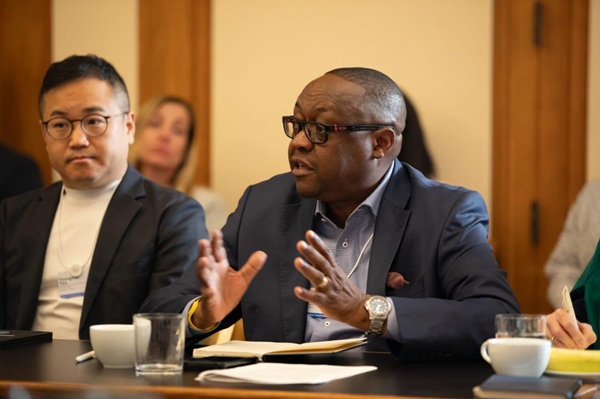
Nairobi is among six global cities selected to join the
inaugural cohort of the Pioneering Places Davos Baukultur Alliance, a global
initiative promoting sustainable, inclusive and well-designed urban
environments.
The announcement was made during the ongoing Davos Baukultur
Alliance Summit in San Francisco, California.
The event, convened by the World Economic Forum in partnership
with KPMG, brought together government officials, urban planners, architects
and business leaders from across the world to discuss strategies for creating resilient
and livable cities.
The Davos Baukultur Alliance is part of a broader international
effort to encourage cities to integrate the principles of Baukultur —
a German term that refers to the culture of building and urban quality — into
their planning and development frameworks.
The initiative emphasises good governance, sustainability,
accessibility and cultural inclusion as key components of urban growth.
Nairobi joins Kuala Lumpur (Malaysia), Medellín (Colombia), San
Francisco (US) and Utrecht (Netherlands) in the inaugural cohort.
Each city was selected for demonstrating innovative approaches
to urban transformation and for fostering collaboration among government,
private sector and community partners.
The recognition of Nairobi comes as the city undertakes several
urban improvement programmes to address challenges related to housing,
transport, waste management and infrastructure.
The county government has been working with KPMG East Africa to
develop project structuring and investment models designed to attract new
capital for infrastructure projects and improve service delivery.
Representing Nairobi at the summit was Deputy Governor Njoroge
Muchiri, who was also a keynote speaker.
Kefa Omoi, director of donor coordination in the Office of the
Governor, accompanied him.
The delegation held discussions with representatives of other
participating cities and global institutions on partnerships to enhance the
city’s urban management capacity.
As a member of the Davos Baukultur Alliance, Nairobi is expected
to adapt global Baukultur principles.
The city will receive technical support and participate in
knowledge exchange programmes designed to strengthen urban governance and
sustainability practices.
These include workshops, policy dialogues and capacity-building
sessions focusing on city planning, resilience and cultural preservation.
“The inclusion of Nairobi in this global alliance provides an
opportunity to learn from other cities that have successfully implemented
sustainable and inclusive urban development strategies,” Muchiri said.
He said collaboration through the alliance would help Nairobi
access expertise and tools to guide its long-term development agenda.
The Baukultur Alliance will also provide a platform for cities
to showcase their progress in implementing the United Nations Sustainable
Development Goals (SDGs), particularly Goal 11, which calls for inclusive, safe,
resilient and sustainable cities.
Member cities will contribute to joint research and reporting on
urban quality and innovation.
Through its participation, Nairobi is expected to strengthen its
position as a leading urban centre in Africa and contribute to regional
dialogue on city transformation.
The partnership will support the city’s ongoing efforts to
improve public spaces, promote sustainable housing, enhance mobility and
preserve cultural heritage.
The next phase of the programme will involve the preparation of
a localised Baukultur action plan outlining Nairobi’s priorities and
commitments under the alliance.
Implementation will be monitored in collaboration with WEF, KPMG
and other global partners.
Instant analysis
With this inclusion, Nairobi joins a select group of cities working to define the next generation of sustainable urban growth through global cooperation and shared learning.
















